Fertility Treatments
Early Assessment and Treatment
Fertility care begins with understanding what’s happening in your body. At NG GyneHealth, we offer a complete fertility check for both men and women.
This includes hormone testing, ultrasound scans, and other diagnostic tools that help build a clear picture of your reproductive health. Once we’ve completed the assessment, we’ll discuss the most appropriate next steps.
These may include ovulation tracking, medication to support egg release, or advanced procedures like Intrauterine Insemination (IUI), In Vitro Fertilisation (IVF), Intracytoplasmic Sperm Injection (ICSI), or Testicular Sperm Aspiration (TESA). In some cases, Preimplantation Genetic Testing (PGT) may also be recommended.
Every plan is built around your individual needs, with care that reflects your specific circumstances. Our specialists, Dr Naguesh Gaunekar and Dr Sally Rodrigues, bring decades of experience to every consultation, helping you make informed choices at each stage.
We’re here to guide you with practical answers, experienced care, and clear options.
Our Fertility Treatments
OT (Ovulation Tracking)
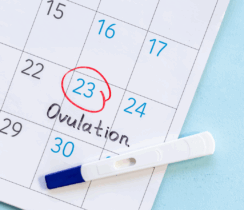
Ovulation Tracking involves closely monitoring a woman’s menstrual cycle to determine the days when she is most fertile. This is usually done through a combination of methods, such as tracking basal body temperature, checking cervical mucus, and using hormone tests that measure levels of luteinising hormone (LH).
Ovulation typically occurs about 14 days before the start of the next period, and identifying this window can greatly increase the chances of conception. Ovulation tracking is often the first step in understanding fertility patterns and is particularly useful for women with irregular cycles.
OI (Ovulation Induction)
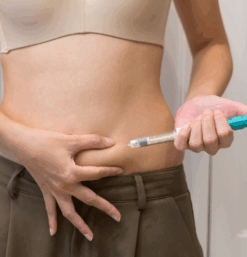
Ovulation induction (OI) is a treatment used to stimulate the ovaries to produce and release eggs.
For women who do not ovulate regularly or have difficulty ovulating, medications like Clomiphene (virtually replaced by the more effective Letrozole) or injectable Follicle-Stimulating Hormone (FSH) can be prescribed.
These medications help to regulate or induce ovulation by encouraging the ovaries to release mature eggs.
Ovulation induction is often used in conjunction with other fertility treatments such as IUI to maximise the chances of pregnancy. The process is carefully monitored through ultrasound and hormone testing to ensure optimal results.
IUI (Intrauterine Insemination)
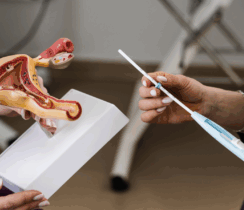
Intrauterine insemination (IUI) is a relatively simple fertility treatment that involves placing washed sperm directly into a woman’s uterus around the time of ovulation. This procedure bypasses the cervix, allowing the sperm to reach the egg more easily.
IUI is often used for couples with unexplained infertility, mild male factor infertility, or cervical mucus problems. The process is typically quick and painless, and it can be combined with ovulation induction to improve the chances of success.
IVF (In Vitro Fertilisation)

In vitro fertilisation (IVF) is one of the most well-known and widely used fertility treatments. IVF involves stimulating a woman’s ovaries to produce multiple eggs, which are then retrieved and fertilised with sperm in a laboratory setting. The fertilised eggs, or embryos, are cultured for several days before one or more are transferred into the uterus for implantation.
IVF is often recommended for women with blocked fallopian tubes, severe male infertility, or when other treatments have been unsuccessful. The success of IVF depends on various factors, including the woman’s age, egg quality, and overall reproductive health.
PGT (Pre-Implantation Genetic Testing)
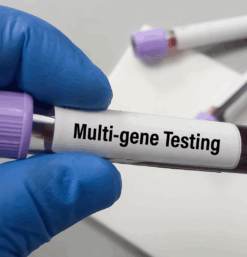
Pre-Implantation Genetic Testing (PGT) is a technique used during IVF to screen embryos for genetic conditions before implantation. This process involves testing the embryos for specific genetic disorders or chromosomal abnormalities, ensuring that only healthy embryos are transferred to the uterus.
PGD is particularly useful for couples who are carriers of genetic disorders or those who have experienced recurrent miscarriages due to genetic issues.
By selecting healthy embryos, PGD increases the chances of a successful pregnancy and a healthy baby.
ICSI (Intra-Cytoplasmic Sperm Injection)
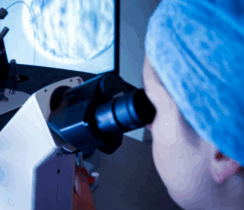
Intracytoplasmic Sperm Injection (ICSI) is a specialised IVF technique used to support fertilisation in cases of male infertility. It’s often recommended when sperm count is low, sperm motility is reduced, or sperm quality is poor. A single sperm is selected and injected directly into the egg, helping to overcome barriers that may prevent natural fertilisation.
ICSI is commonly paired with procedures like TESA (Testicular Sperm Aspiration) when sperm needs to be retrieved directly from the testicle. Once the egg is fertilised, it’s developed just like in standard IVF before being transferred to the uterus.
While ICSI can improve fertilisation rates, overall outcomes still depend on sperm health, egg quality, and embryo development.
TESA (Testicular Sperm Aspiration)
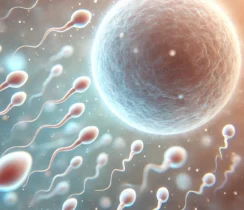
Testicular Sperm Aspiration (TESA) is a minor surgical procedure used to retrieve sperm directly from the testicle. It's often recommended when no sperm is present in the ejaculate, such as after a vasectomy or in cases of azoospermia: a condition where sperm is absent due to either a blockage (obstructive azoospermia) or low sperm production (non-obstructive azoospermia).
TESA is performed using a fine needle under local anaesthetic, and is typically paired with IVF or ICSI to support fertilisation.
This technique offers men with low or absent sperm production the opportunity to achieve biological parenthood through assisted reproduction.
N.G. GyneHealth Care Pty. Ltd. © 2006-2025. ABN: 68 119 441 413
Web design by Beetle Digital Pty. Ltd.







